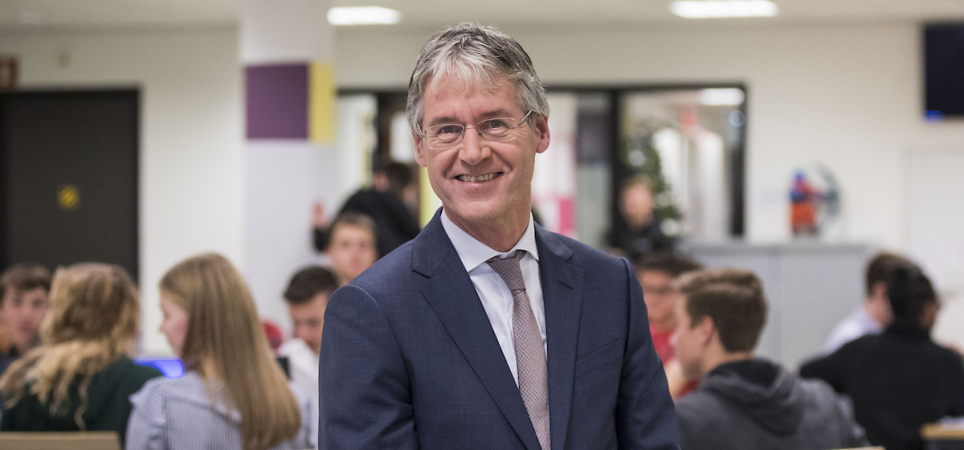Minister Slob: number of home sitters is increasing
In the already difficult dossier of 'appropriate education', education minister Arie Slob again has to deal with a setback. According to new figures, the number of people sitting at home has increased, he reported today in a debate with the Lower House.

Image: Valerie Kuypers
In 2016, the then State Secretaries Sander Dekker (education) and Martin van Rijn (Public Health, Welfare and Sport), together with the Association of Dutch Municipalities and umbrella organizations PO Council and VO Council, concluded a pact: in 2020 there will be no more children than three months at home.
Despite the nice words, little comes of it. At the beginning of last year, the counter was still at four thousand children. And new figures do not cheer Slob: "The picture is not good. It is simply not possible to reduce the number of people sitting at home, we will need more time." In the course of February, the House of Representatives will talk about this during a debate on education and care, accompanied by current figures, in which Minister Hugo de Jonge of Public Health will also take part.
Thought
It is hard to explain that there are so many people sitting at home while the financial reserves increase in partnerships, MPs grumbled. Slob came to meet them: he wants to limit the reserves by setting a bandwidth. "That's a thought that really appeals to me," he said. He will come up with a proposal next spring. "As far as I'm concerned, those may be very low upper limits," responded D66 MP Paul van Meenen, pointing to the limited financial risks that partnerships run in practice.
As far as I am concerned, these may be very low upper limits for the financial reserves
The assumption of some MPs that the growing reserves can be attributed to the national redistribution of support budgets (equalisation, in policy parlance) - and that only regions with growing revenues set aside more money - is contradicted by Slob. Also an analysis of the Education Magazine invalidates that image. Partnerships across the country saw their buffers increase. Also in the south and east, where budget cuts are being made.
In many of those regions, schools for (secondary) special education have shrunk considerably over the past four years. The number of pupils in secondary and secondary education sometimes fell by as much as forty percent. In secondary education, Slob recognizes "somewhat" a relationship between the regional decrease in special education and the negative equalization. "Based on what we know now, we do not yet see a significant connection in primary education." As the redistribution - which will be phased in through 2020 - continues to be completed, that relationship could become stronger, and a report on this is also expected next spring.
Basic support
In the meantime, the Minister of Participation Councils is trying to give more control over the flows of money in their partnership by overview to publish the available support money per school. The House grapples with the question of how teachers can gain more control in the often opaque and bureaucratic appropriate education.
The House grapples with the question of how teachers can gain more control in the often opaque and bureaucratic appropriate education.
Once again, various parties took the opportunity to argue for a single national level of basic support, so that teachers and pupils know what minimum care can be required. Slob has examined the differences in basic support between regions, but is as yet not very enthusiastic about a centrally imposed minimum standard. Just like the VVD, which especially emphasizes that there must be sufficient attention for specific regional circumstances.
foundation
Asked about his statements in one Education magazine interview, VVD MP Rudmer Heerema reiterated that the system of appropriate education must be thoroughly examined. “Appropriate education works in a very large number of places, but not in a very large number of places. I do not stand in the position that we have to overhaul the entire appropriate education system, but sticking plasters on a system that does not work sufficiently is also not enough. We need to look at how we can make education more appropriate than with just a generic policy change. When regular students receive too little attention and special needs students too, you have to look at the fundamentals of the system. ”
Heerema, and with him a large part of the House, would like to see the final evaluation brought forward. This is expected in the course of next year. "Every month earlier, I find myself included."


